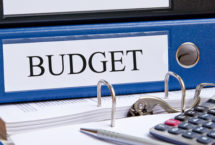Most people see owning a home as a milestone; a marker of success; an important step in settling down and gaining stability. Homeownership is usually touted as a great investment that builds for the future, offering you and your family not only a comfortable domicile but also a safe place to protect your savings, raise your kids, pass down to your heirs or even sell at a profit. But is the key to your own home’s front door really the key to fulfilling your dreams?
If you are debating buying versus renting your next home, following are a few basic principles that can help you make the best decision.
Can You Afford to Buy?
The first consideration is this: Can you afford to buy a new home? Remember, there’s more to the cost than the monthly mortgage with interest, which should not exceed more than roughly 30 percent of your income. You also must figure in other expenses, such as homeowner’s insurance, property taxes, maintenance and repairs, lawn upkeep, association fees and other costs.
Have you saved enough for a reasonable down payment? Most experts recommend or require putting down at least 20 percent of the selling price. The more you can afford to pay down, the more you will save on your mortgage payment. If you put down less than 20 percent, you will likely be required to pay for private mortgage insurance (PMI) until you have at accrued at least 20 percent equity in your home. This insurance is designed to protect the lender in case of default, since homeowners with the least amount of equity are the ones most likely to default on their payments. PMI payments will increase your monthly expenses.
Before buying, talk to an insurance agent and your county tax assessor’s office. Do the math on estimated maintenance, repairs and all other costs associated with owning a home. You might be surprised at how high the real cost is compared to how much you initially estimated. In addition, many first-time homebuyers fail to consider basic purchases that go with a new home: lawn and garden equipment, tools, paint, supplies and other essentials.
Compare the estimated costs to your monthly income. Is the total cost below 30 percent of your income? If not, buying a new home right now may not be a good idea, and you should take another look at renting. With renting, you avoid several substantial costs, including property taxes, homeowner’s insurance, association fees and most repairs and maintenance.
While simply comparing monthly costs and seeing which option is cheaper might be enough to make your decision, buying may not be the best choice for you.
Are You in Debt Already?
Even in today’s economy, with recently rising but fluctuating home prices and sales, buying a home can be a good investment; however, if you are in substantial debt you should delay any home purchase until that debt is paid down. As noted previously, homeownership has hidden costs, which many first-time buyers are not aware of, and finding out too late that you can’t pay your monthly credit card bills plus your mortgage payment is a surprise you don’t need. If you’re in debt, even if your monthly income is adequate, you should probably rent until you pay it off and then reconsider buying.
How Long Are You Staying?
Financial advisors recommend that homebuyers should plan to stay in their new homes for at least three to seven years; otherwise, the costs of ownership might outweigh the benefits when compared to renting. Selling your home is almost never easy, and buying one is a long-term commitment. If you want the freedom to move in a few years to take a new job, for example, don’t get stuck with a monthly mortgage, thinking you will sell your home, make a quick profit and move on.
Selling a home might not be as lucrative as you imagine. If you go through a real estate agent, you will pay a fee when your house sells, and you may incur closing costs, in addition to moving expenses. You should also consider that the housing market can go down as easily as it can go up. Given the recent housing market, if you plan to sell your home less than five or six years after buying, you might increase your risk of owing more than you can get on the market.
It might be hard to predict how long you will be in your new home, but make the best guess possible. If you like the freedom to move on short notice or if you have a history of frequent job changes, renting may be the better option.
Home: Anywhere You Live
There is no one answer to the question of buying versus renting a home. But considering the monthly costs, your income, savings, debt and how long you plan to stay in one place can help you make an informed decision that can save time, money and stress, and make your new home a more peaceful place – whether you rent or buy.





